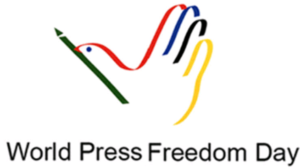QUESTIONS FOR SHELL REGARDING NIGERIAN OPERATIONS
By Zik Gbemre
We recently stumbled into a report by Rachel D’Oro of the Associated Press titled “SHELL, ALASKA NATIVES TO SHARE IN OFFSHORE DRILLING PROFITS, which is a worthy Shell initiative in Alaska that positively engages host community locals as ‘partners’ to share directly in the oil and gas bounty of their coast.
An extract from the said report reads: “An Alaska Native regional corporation and six Native Village corporations signed an agreement with a Shell Oil subsidiary Thursday (7/31) that aims to share the profits from offshore drilling off Alaska’s northwest coast. Shell and the Arctic Slope Regional Corp. announced the formation of a new company called Arctic Inupiat Offshore LLC. Its participants include six village corporations on the North Slope. The agreement with the Shell subsidiary, Shell Gulf of Mexico Inc., gives the Alaska Native company the option of acquiring an overriding royalty interest from Shell’s drilling on leases in the Chukchi Sea.” And according to the Shell Alaska Vice President Pete Slaiby. He said the agreement also underscores Shell’s commitment to provide opportunities for the communities.
The reported also noted that “Shell’s decision to invest in the future of the region and its people should be applauded,” Murkowski said in a statement. “This announcement ensures that the people of the North Slope Borough share directly in the oil and gas bounty off their coast. It also gives locals a say in what happens near their communities.”
Looking at the above development and report, we could not help but raise some questions regarding Shell’s obvious discriminatory and baize style of operations in different parts of the world. We could not but wonder why Shell would do what they are doing in Alaska but fail to do same in other countries and places like the Niger Delta region in Nigeria?
For instance, on the Divestment of Shell (SPDC) onshore assets in the Niger Delta region, Shell initiated this process which according to them, was to help grow local capability. Oil blocks in Shell’s Western operations in Nigeria were sold to mostly Nigerian companies who were in partnerships with foreign funding and technical partners. Neither the host Delta State Government nor local communities were considered in these as partners, and this generated a lot of community backlash with threats from local state communities to block operations. Shell (SPDC) seems not to have learnt lessons from that experience, as they have just recently concluded similar sale of blocks in the Eastern area covering Rivers and Bayelsa States, again without considering the issue of partnerships or some equity stake for the host State Governments and local communities.
Why does Shell not learn lessons and do things right in order to avoid recurrence of problems from its host communities? Why does Shell (SPDC) not consider inviting the State oil companies of Rivers (Treasure Energy Resources) and Bayelsa (Bayelsa Oil Company) to partake as partners, and offer them some preferential equity? Shell (SPDC) has lost a golden opportunity to take the lead in the industry in Nigeria and change their community integration policy as it is practiced now in other countries, like the example above in Alaska.
The UNEP report funded by Shell was issued just over 3 years ago, and in the report both Shell and the Federal Government of Nigeria were indicted and specific actions aimed at remediating the severe environmental damages were assigned to all parties. The Federal Government of Nigeria has done nothing to address the issues and the communities impacted continue to suffer. Shell as the global operator that claims “best operating practices” is also not doing anything to get the government to respond. This attitude would never be condoned by Shell if it were in the US or Europe. The Macondo case of BP in the Gulf of Mexico, and the way the US government dealt with them is clear. BP was severely punished and the affected communities very well compensated for loss of business. Because the Nigerian government is weak and has no interest in what happens to the Ogoni communities, Shell seems to have accepted that and taken advantage to do nothing, in violation of global standards. So why does Shell condone evil practices in Nigeria, allowing such environmental devastation to linger without adequate attention? Shell knows they cannot do this in countries with better and stricter regulatory governance.
Another aspect is Shell and their community legacies. Shell started from Oloibiri (now in Bayelsa State) and left the town dead and desolate. Shell was in Warri, Delta State, where they sold out and have left Warri an “industrial ghost town with most businesses dead”. In fact, Shell (SPDC) left and abandoned hundreds of Office Building Blocks and Residential Buildings in Warri, Delta State, which are today overgrown with weeds and overtaken by rodents. Shell has equally completely withdrawn and stopped all its Scholarships and Community Development Projects/Programmes meant for host communities of its Western operations like OML 34, OML 30, OML 42 etc.
Now they are planning to leave Port Harcourt. So they also plan to leave Port Harcourt desolate with industries dead. Is this the legacy Shell wants to leave everywhere they operate in the Niger Delta? Is this the sort of legacy any reasonable corporate entity should leave behind in Nigeria where it has operated in over 50 years?
Shell is planning to divest more blocks in its Eastern operation areas. Does that include the Ogoni blocks? And how can they use this to address the lingering problems with Ogoni people? Will Shell not see this as opportunity to redress bad decisions made in previous Divestments and invite State companies to participate and own equity like they have done in Alaska?
These and many more are questions we would want relevant authorities of Shell (SPDC) and Shell International in The Hague, including the Nigerian Government and other countries where Shell is operating, to seriously ponder on and find answers to; by doing the right thing. This we urge.
Zik Gbemre, JP
National Coordinator
Niger Delta Peace Coalition (NDPC)



